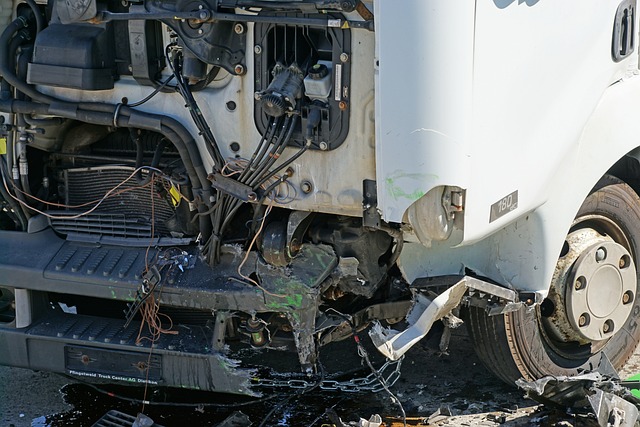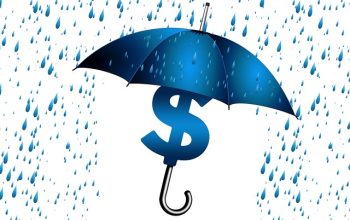When it comes to safeguarding your assets and financial stability, a personal umbrella policy emerges as a critical component of one’s risk management strategy. This article delves into the pivotal role of an umbrella policy in providing extensive third-party liability coverage that goes beyond what standard homeowner or auto insurance policies offer. It highlights the necessity of such protection, especially in light of the rising frequency and cost of claims as noted by the Wall Street Journal. We will explore the expansive scope of a personal umbrella policy, including how it addresses homeowner liability shortfalls and offers comprehensive coverage for accidental injury, as well as protection against property damage. Through detailed case studies, the article underscores the importance of this additional layer of defense to secure your finances in unexpected scenarios.
- Understanding the Scope of a Personal Umbrella Policy
- The Importance of Third-Party Liability Coverage Beyond Standard Policies
- Homeowner Liability: What Your Standard Policy May Miss
- Comprehensive Accidental Injury Coverage with an Umbrella Policy
- Protecting Against Property Damage with a Personal Umbrella Policy
- Real-World Examples and the Financial Impact of High-Cost Claims
Understanding the Scope of a Personal Umbrella Policy

A personal umbrella policy serves as a critical component in one’s risk management strategy by offering extended liability protection beyond the coverage limits of existing policies, such as homeowner’s or auto insurance. This additional layer of security is particularly important for incidents involving third-party liability, where you may be held responsible for bodily injury or property damage inflicted upon others. For instance, if a visitor slips and falls on your property and incurs significant medical expenses, or if your dog causes injury to someone, the umbrella policy can provide coverage that exceeds the limits of your primary liability policies.
Furthermore, accidental injury coverage under a personal umbrella policy can be a financial lifeline. It extends to scenarios where you are held legally accountable for unintentional acts leading to injuries or damages. This is not limited to occurrences on your own property; it may also apply when you are involved in an incident while driving or elsewhere. The coverage is designed to protect against the high costs associated with litigation and settlements, which can rapidly escalate out of proportion to one’s assets. Property damage insurance within this policy also extends beyond the confines of your homeowner’s policy, offering broader protection for unintended damages caused by you or a member of your household, such as a child playing in the neighborhood who accidentally damages someone’s property. With the prevalence of costly claims and lawsuits, as highlighted by reports from the Wall Street Journal, investing in a personal umbrella policy is a prudent measure to safeguard your financial security against unforeseen liabilities.
The Importance of Third-Party Liability Coverage Beyond Standard Policies

A personal umbrella policy serves as a critical safeguard against unforeseen liabilities that exceed the limits of standard homeowner or auto insurance policies. This additional coverage is crucial in providing comprehensive third-party liability protection. For instance, if someone slips and falls on your property and incurs significant medical expenses, your homeowner’s policy may have limits on how much it will pay for bodily injury claims. An umbrella policy steps in once those limits are reached, ensuring that you are not financially responsible for the costs beyond what your primary insurance covers. This is particularly important given the potential for high-cost claims arising from accidents or incidents where you may be held liable.
Furthermore, accidental injury coverage under an umbrella policy extends beyond the immediate aftermath of an incident. It also offers protection against lawsuits that could ensue as a result of such events. This is not merely a matter of considering what could happen but recognizing the increasing frequency of substantial claims reported by sources like the Wall Street Journal. Property damage insurance within an umbrella policy further extends this coverage, protecting you from financial loss if your actions—or inactions—result in harm to another’s property. With the potential for a single event to exhaust your standard policy limits, a personal umbrella policy offers peace of mind by providing additional layers of protection, ensuring that your financial well-being is not compromised by an unforeseen legal or liability situation.
Homeowner Liability: What Your Standard Policy May Miss

A standard homeowner’s insurance policy typically provides a baseline of protection against certain types of liability claims. However, these policies often have limits that may not be sufficient to cover all potential third-party liability scenarios. For instance, if someone is injured on your property and seeks compensation for medical expenses, lost wages, or pain and suffering, the costs could easily exceed the limits of a standard policy. This is where a personal umbrella policy comes into play, offering extended coverage that picks up where your primary insurance leaves off. An umbrella policy can provide additional layers of third-party liability protection, ensuring that you are not financially vulnerable in the event of a large claim or lawsuit. It extends the amount of personal injury and property damage insurance you have to protect your assets and provide peace of mind. This is particularly important given today’s litigious society where a single incident could lead to substantial financial obligations. Accidental injury coverage under an umbrella policy can cover claims that might involve guests or others on your property who suffer an injury due to your actions or those of a household member. With the rise in both the frequency and severity of liability claims, as highlighted by reports from sources like the Wall Street Journal, securing a personal umbrella policy is a prudent step for homeowners to consider in order to safeguard their financial security.
Comprehensive Accidental Injury Coverage with an Umbrella Policy

A personal umbrella policy serves as a critical safeguard against unforeseen events that can lead to substantial financial loss. Beyond the coverage limits of traditional homeowner or auto insurance, this policy activates once those limits are exceeded. It is particularly beneficial in scenarios involving third-party liability, where you might be held responsible for bodily injury or property damage inflicted upon others. For instance, if a visitor were to slip and fall on your property and incur significant medical expenses, or if your pet causes injury or damage to someone else’s property, the personal umbrella policy can provide extensive coverage beyond what is typically offered under a standard policy.
Accidental injury coverage under an umbrella policy is designed to offer comprehensive protection that extends far beyond everyday mishaps. It can cover claims resulting from incidents such as a guest being seriously injured at your home or an accident involving a vehicle you own. This extensive liability insurance not only protects against the costs of medical treatments and legal fees but also provides a buffer against potential lawsuits that could threaten your personal assets. With the frequency of high-cost claims on the rise, as reported by the Wall Street Journal, having a robust umbrella policy in place is a prudent measure to ensure that an isolated incident doesn’t jeopardize your financial security or the future of your home and lifestyle.
Protecting Against Property Damage with a Personal Umbrella Policy

A personal umbrella policy serves as a critical safeguard against unforeseen third-party liability claims that may exceed the coverage limits of standard homeowner or auto insurance policies. This additional layer of protection is particularly important in scenarios where you are found responsible for accidental injury or property damage. For instance, if a guest at your home sustains an injury due to your pet or a slip and fall incident, the costs associated with their medical care could be substantial. Similarly, if your actions—or lack thereof—result in damage to another person’s property, the expenses for repairs or replacement can quickly escalate. An umbrella policy steps in where your primary policies leave off, providing a broader scope of coverage that can shield you from these financial risks without depleting your savings. This means that whether it’s a dog bite incident, an accident involving your car, or any other event leading to property damage, your personal umbrella policy can offer the additional protection necessary to cover costs beyond the limitations of your existing policies, thereby maintaining your financial security.
Real-World Examples and the Financial Impact of High-Cost Claims

An umbrella policy serves as a critical financial safeguard in scenarios where standard homeowner or auto insurance policies fall short, particularly in the face of third-party liability claims. For instance, consider a situation where an individual is held responsible for a serious accident resulting in significant bodily injury to another person. The costs associated with medical care, lost wages, and potential legal defense fees can easily exceed the limits of standard coverage. In such cases, a personal umbrella policy steps in to provide the additional funds necessary to cover these expenses without depleting an individual’s personal savings or assets.
Moreover, property damage claims arising from incidents like fires, floods, or vandalism can also lead to high-cost liabilities. If the costs to repair or replace damaged property exceed the coverage limits of a homeowner’s policy, the umbrella policy kicks in, offering a broader scope of protection. A real-world example is a homeowner whose guest is injured on their property due to an unexpected slip and fall incident. The medical expenses could be substantial, and if the homeowner is found liable, their personal umbrella policy can cover the excess costs beyond what their homeowner’s policy would typically pay out. This not only protects the individual’s financial stability but also ensures that they are not burdened by the economic repercussions of an unfortunate event. Accidental injury coverage and property damage insurance, therefore, become integral components of a comprehensive risk management strategy for homeowners and individuals who frequently operate vehicles.
In conclusion, the integration of a personal umbrella policy serves as a critical financial safeguard in today’s litigious society. It extends the limitations of traditional homeowner and auto insurance, providing robust third-party liability coverage that addresses potential vulnerabilities in homeowner liability. This additional layer of protection is particularly valuable for accidental injury coverage and property damage insurance, areas where standard policies might fall short. The insights shared from real-world scenarios underscore the financial prudence of investing in a personal umbrella policy to mitigate the risks associated with high-cost claims. As highlighted by the Wall Street Journal, the rise in such claims underscores the necessity for individuals to consider this coverage as an essential component of their overall insurance strategy. Prudent consumers recognize that a personal umbrella policy is not just an optional add-on but a vital element for comprehensive protection against unforeseen events.



